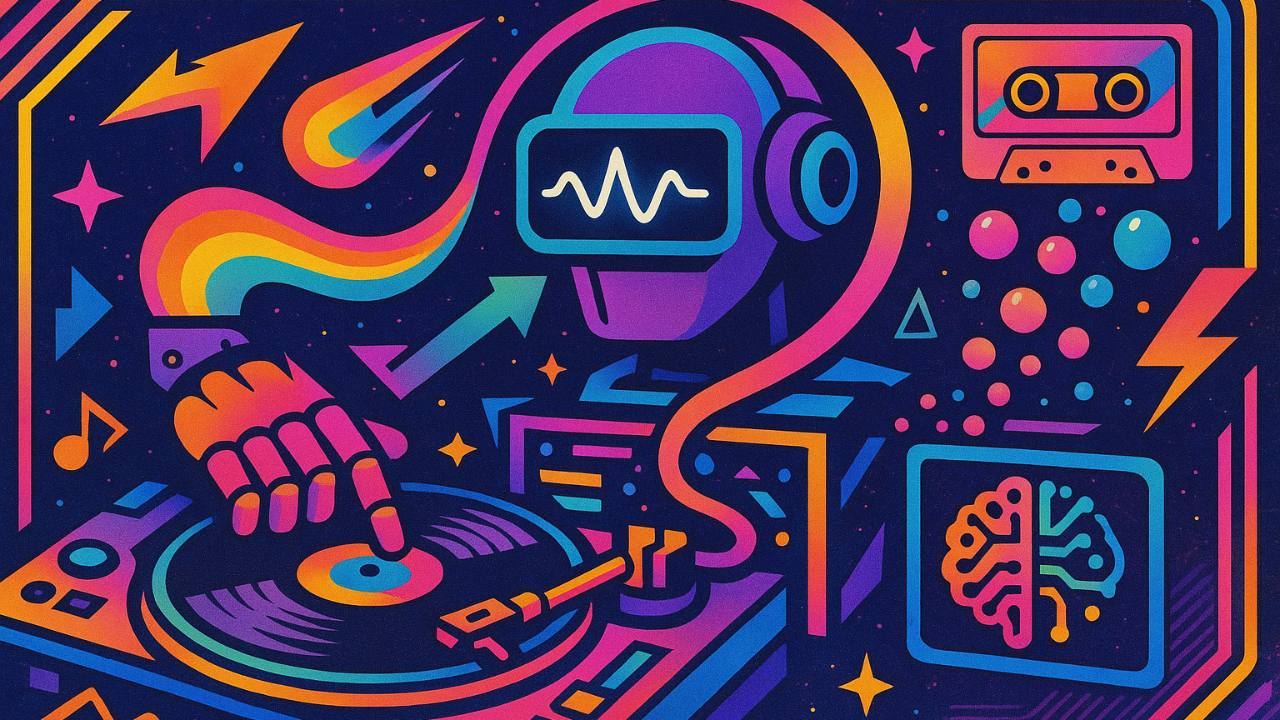Picking a Model Family
Which model should I use for ___________?
I probably hear this question at least once a day; it's the single most common question that I get. You likely found AI for SMBs Weekly because of our AI Models for SMBs Comparison Chart (freshly updated on 6.18.25; subscribe to get a copy!).
But this chart is quite zoomed in, focusing on each of the individual models offered by the leading frontier AI research labs based in North America. This week's post is different from the prior 16 issues. Today, we'll zoom out and review each of the frontier model families by the leading US-based labs in order to help you make the right decision for your business.
Note that you're not going to find a "winner" in this review. Every SMB is unique, and it's impossible for me to make a blanket recommendation given the current state of the technology.
But there's good news. Over time, generative AI models are becoming more and more commoditized. Their features and prices are increasingly in parity with one another. And it's far easier to switch among model families than you might think; your choice today doesn't lock you in forever.
I currently subscribe and regularly use 4 of the 5 families of models. Here's my direct take on each major player.
Five Three Choices
Given the current geopolitical landscape, I recommend that US-based SMBs pick a model family that they could easily get into the US legal system if necessary. This immediately limits your choices to five: the ChatGPT family from OpenAI, the Claude family from Anthropic, the Gemini family from DeepMind / Google, MetaAI from Meta, and the Grok models from X.ai.
As of this writing, I cannot classify either MetaAI or Grok as "business-ready" frontier model families. Grok's mobile app offers a voice mode option that invites an HR lawsuit ("Sexy 18+" is extremely NSFW). They've announced "Grok for Business", but that's not yet widely available - meaning that you're not able to administer workplace accounts or turn off some voice modes. Employees would have to sign-up as individuals, which means you can't exercise appropriate governance.
MetaAI is similarly lacking in their business-focused offerings; currently, you can only sign-up as an individual, there are no business accounts. Perhaps more troubling is MetaAI's recent issues with privacy... Techcrunch has called it a "privacy disaster". Of all the frontier models, I've used MetaAI the least and cannot offer a more nuanced assessment of its personality.
You might be asking, "Hey - where's Microsoft Copilot?" Currently, this is just a skinned and productized version of ChatGPT from OpenAI. Microsoft is not technically a "frontier" AI lab. Frustratingly, Copilot is also missing the core "chatbot" feature that is the hallmark of all of the other frontier models, which makes it a highly frustrating and limited tool.
While its integration into the Microsoft ecosystem is outstanding (on par with Gemini in Google Workspace), it's lack of some of the core features means that this can't serve as your primary choice. You would struggle to build any of our jigs in Copilot.
ChatGPT
ChatGPT was first on the scene and remains a leading frontier model. It is the largest family of models and the most full-featured. Notably, it is the only family of models that can integrate across both Google Workspace and Microsoft Sharepoint/ Onedrive. Their reasoning models (the "o#" series) are incredibly powerful and among the smartest and most capable models I've ever used. The mobile and desktop apps are excellent. I'm encouraged to see them adopt the Model Context Protocol (MCP), a standardized way for generative AI to talk to other digital services.
I find myself using ChatGPT daily, especially custom GPTs (jigs FTW!). In terms of model personality, I find these to be a bit like an over-eager, slighlty over-confident MBA intern. Always diligent, usually right - but always sounds right. I wish this model family was better at asking me questions.
Pricing: ChatGPT Team runs $25+ per user monthly with a 2-user minimum. Enterprise pricing is custom but typically starts around 150+ users. The Free and Plus tiers use your data for training unless you manually opt out; stick with Team.
Strengths: Custom GPTs are amazing and probably the best paradigm for "building jigs" among all of the model families. Their share-ability is the killer feature no one else has fully cracked. Memory features persist across conversations, reducing repetitive context-setting. ChatGPT now offers official Google Drive and Microsoft connectors for Team and Enterprise customers, making it more Google-friendly than you'd expect from a Microsoft partner.
Weaknesses: ChatGPT struggles with consistency; different conversations can yield highly different results for identical prompts. The model occasionally "hallucinates" confident-sounding but incorrect information, especially about recent events. Context window limitations mean long documents need chunking. Customer support is notoriously slow for paid accounts. And while the ecosystem is vast, quality varies wildly—many GPTs and third party integrations are poorly maintained or redundant. The scale and the complexity of this family of models it it's weak point.
Dealbreakers: As of this wrting, ChatGPT is being required to indefinitely store chat logs as part of their court battle with the New York Times. Depending on your use case, this may be a deal breaker.
Gemini
Google's Gemini was relatively later to market, but has made huge progress over the past year. Gemini 2.5 Pro is one of my favorite models to work with, their video and image generation capabilities are neck-and-neck with OpenAI for best-in-class. Its integration into Workspace is solid, even if there's room for improvement. You can't beat the pricing if you're already a Workspace customer.
I run MQC on Google Workspace and have come to rely on this family of models in my day-to-day work. Gemini inside of Drive is amazing, and NotebookLM is one of the most unique and truly helpful generative AI products out there right now. Gemini in Meet is best-in-class for transcripts. If you're on Workspace and want Gemini to be the only model family you offer to your team, that's a great choice.
If you go down that path, make sure to read my prior issue on Capturing Transcripts as you might be able to save a fair bit on subscription fees given the Gemini x Meet integration.
Pricing: Gemini is included in your Workspace subscription—there's no separate AI bill to manage. If you're not on Workspace, then your only way to get Gemini is to become a Workspace customer.
Strengths: Native integration is Gemini's killer feature. It's baked directly into Gmail, Docs, Sheets, Drive, and Meet with zero setup required (and highly granular controls on everything inside of your admin panel). The only issue is that these integrations are - well - ho-hum. Now that ChatGPT and Claude are also integrated with Google Drive, I've put them all head-to-head and - oddly - it's Claude that seems to be the best at finding that specific bit of info inside of your Gmail or Calendar. I've got to imagine that Gemini will be improving this soon...
Weaknesses: Gemini's responses can feel robotic compared to ChatGPT or Claude. The model struggles with creative writing. There are limited customization options; you can't adjust temperature or response style like other families. The model sometimes refuses to engage with legitimate business scenarios it deems "controversial." Gemini's version of custom GPTs, so-called "Gems", have great promise but are still an immature product. And while integration in Drive is deep, it's also inflexible; you can't export Gemini's capabilities to non-Google tools (yet).
Dealbreakers: If you're not on Workspace, then Gemini isn't a viable choice unless you're planning to switch over entirely. At least today, I wouldn't say that Gemini is so amazing you should do that.
Best for: Google Workspace organizations that value seamless integration over flexibility. If you're all-in on Google and don't need extensive third-party connections, Gemini offers the smoothest and cheapest experience.
Claude
Of all the model families, I've consistently "vibed" (to use the technical term) with Claude more than any others. It seems to "think" like me more effectively than other models, and is far and away the best writer. Their shareable "Projects" are the best implementation of this functionality in any model family, and it's truly wild what you can pull off in an Artifact. The long context window of their Opus models make them fantastic at working with very long chunks of text.
That said, Claude is also the most frustrating family of models I've used for one major reason: rate limits. Unless you're willing to fork over $100+ for a higher rate limit plan, you're likely to get yourself locked out until noon or 8pm (when rate limits reset) in under an hour of working. I've gotten to the point of starting jobs 30 minutes before the rate limit reset just to give myself a longer, uninterrupted working session.
Pricing: Claude Team costs $25+ per user monthly with a 3-user minimum. All paid tiers (including their individual plans) include the same privacy guarantees; if you're a company of one, this is a great choice.
Strengths: Privacy is Claude's genuine differentiator: no training on business data and 90-day automatic deletion. Google Workspace integration are best-in-class, even better than Gemini. Claude does write more naturally than competitors and excels at long documents. Projects can be shared across teams, which ChatGPT's Custom GPTs + Projects features can't match. The artifacts feature for creating interactive code is legitimately useful, even if frustrating to share.
Weaknesses: Claude (like Gemini) can be maddeningly cautious, refusing legitimate business requests that ChatGPT handles without blinking. Need to analyze competitor websites? Claude might lecture you about ethics. Want to generate sales copy? Prepare for disclaimers about "manipulation." The smaller ecosystem is a real limitation—while ChatGPT has thousands of plugins, Claude users get... nothing. Zero internet access means you're constantly copy-pasting information that other models fetch automatically. Claude hits rate limits FAST. Those "45 messages every 5 hours" disappear quickly when you're doing real work.
Dealbreakers: Just two months ago, this would have been a fairly long list. But Claude has made huge progress, and there's now just one big dealbreaker. Claude doesn't do images. It can create charts and graphs using its ability to code, but is a text-only model. If you're planning to use your frontier model family for graphic design, then Claude can't be your only choice.
Best for: Businesses with strict compliance requirements who can tolerate the limitations. If data privacy trumps functionality, or you're in healthcare/finance with heavy regulations, Claude might be your only option. This is also great for businesses which don't have any visual / graphic design needs.
More than One?
Currently, I subscribe to Claude, ChatGPT, Grok, and Gemini (through being a Workspace customer). As a consultant and advisor, I'm highly aware of the value / cost of my time and the ROI is undeniable.
That said, the entire focus of MQC is on generative AI. This gives me a great excuse to regularly experiment with models, comparing their features side-by-side. There can be a steep learning curve to models in the beginning, but after about a ~month you get a feel for them individually, especially if you're able to work with them for at least ~10-15 hours/week.
If you're finding yourself doing this much heads-down with that involves generative AI, then subscribing to them all may make sense.
Lately, I've been fond of thinking of frontier generative AI models like the tools in a workshop of a master craftsperson. You would never imagine telling a master carpenter that they're only allowed to use one hammer. One chisel. Rather, we highly value an expert who knows how to use which tool in what ways in order to accomplish very specific things.
If you're able to produce outcomes that you can't otherwise produce but for using multiple models, do it. Look for ways to use generative AI - in ways that others haven't yet figured out - to produce extreme outcomes. Ways that blend your human expertise with the unique capabilities and affordances of these strange and powerful new tools in your workshop.
Make Your Choice
Here's my advice: pick based on your current infrastructure and start building.
Already on Google Workspace?
Start with Gemini for 3 months. The native integration will accelerate adoption.
Need maximum flexibility and/or are on Microsoft Onedrive or Sharepoint?
ChatGPT's ecosystem makes it the safest bet for diverse workflows.
Handle sensitive data? Don't need graphic design?
Claude's privacy-first, text-only approach provides the strongest foundation.
Switching costs are manageable if you plan ahead. All platforms offer data exports (ChatGPT and Claude within 24 hours, Gemini within 72 hours). The biggest barriers are human: retraining staff and rebuilding workflows.
The expensive mistake isn't picking the "wrong" platform, it's waiting for the perfect choice. Every major update shifts the competitive landscape; as you've seen in the AI Models for SMBs Comparison Chart, we're basically at the pace of ~1 new frontier model launched and every week.
And that pace is accelerating.
So, start somewhere.
Build AI capabilities into your daily operations.
Stay informed about the evolving landscape.
Switch when it makes sense, not when it's perfect.
Your AI journey begins with choosing a dance partner, not a spouse. Pick the platform that matches your needs today, and trust that the market's maturity means you'll adapt tomorrow.
✨ ✌🏻 ✨
If you have ideas for future newsletters, I'd love to hear them.




